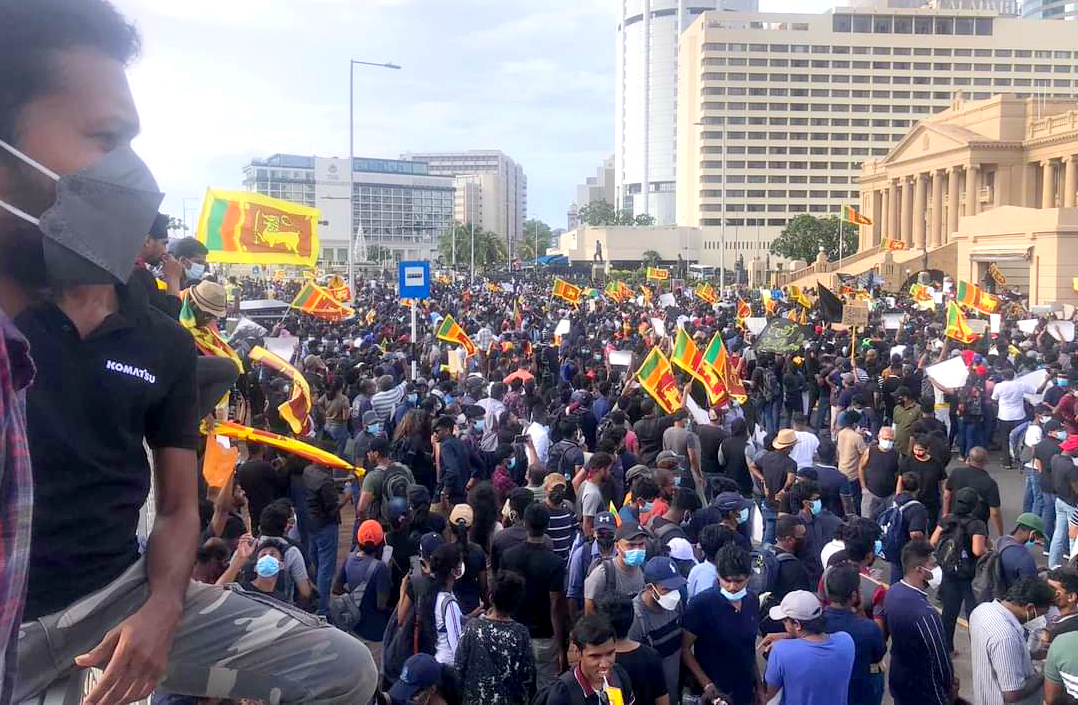SECURITY around Sri Lanka’s parliament building in the capital, Colombo, has increased, with armed and masked soldiers guarding the building and roads nearby closed to the public.
More than 100 police and security personnel with assault rifles are openly deployed on the approach to parliament, with many more hidden in reserve.
Police officers are manning barricades and a water cannon is standing by in the event of any unrest.
Security has been tightened in Colombo since thousands of youth and workers stormed and occupied the presidential palace and the prime minister’s office last week.
Former President Gotabaya Rajapaksa has at last sent his long-promised letter of resignation from Singapore, where he fled following his ousting last week.
The Sri Lankan parliament met amid heightened security on Saturday following Rajapaksa’s ousting, and announced its intention to begin choosing a new leader.
Following Rajapaksa’s ousting, Prime Minister Ranil Wickremesinghe was sworn in as president last Friday.
But protesters in the crisis-hit island nation insist the six-time prime minister too must step aside.
Storming the presidential palace and prime minister’s office last week, the revolutionary youth were equally chanting ‘Gota Go Now’ and ‘Ranil Go Now!’
Rajapaksa, fled in a military aircraft to the Maldives and then to Singapore to escape the popular uprising against his government.
In his resignation letter, Rajapaksa claimed Sri Lanka’s financial crisis was rooted in years of economic mismanagement predating his presidency, along with the Covid-19 pandemic that cut Sri Lanka’s tourist arrivals and remittances from foreign workers.
‘It is my personal belief that I took all possible steps to address this crisis, including inviting parliamentarians to form an all-party or unity government,’ the letter said.
The protesters accuse Rajapaksa and his family of corruption and siphoning many millions from government coffers.
In a televised statement last Friday, Wickremesinghe said he would initiate steps to change the constitution to restore law and order, and take legal action against ‘insurgents’, who he had previously described as ‘fascists’. He has instructed the army to ‘do whatever is necessary’ to restore order.
‘There is a big difference between protesters and insurgents. We will take legal action against the insurgents,’ warned Wickremesinghe.
The Sri Lankan military claimed last Thursday it has the power to respond in case of chaos, in a message described by some as ‘ominous’.
Meanwhile, opposition presidential nominee Sajith Premadasa promised to ‘listen to the people’ and to hold Rajapaksa accountable.
Premadasa said he would ensure that ‘an elective dictatorship never, ever occurs’ in Sri Lanka.
‘That’s what we should do. That is our function – catching those who looted Sri Lanka. That should be done through proper constitutional, legal, democratic procedures,’ he said.
